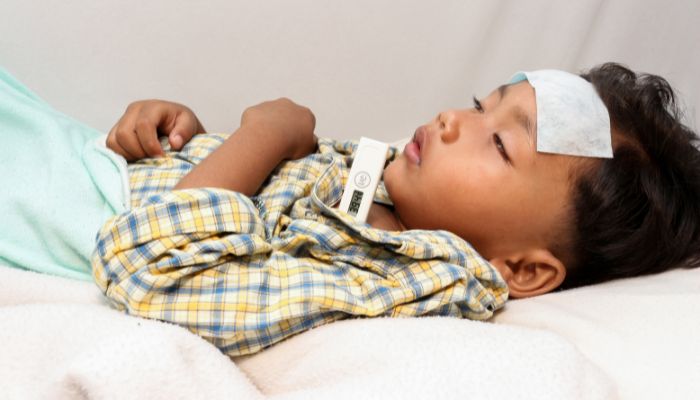Worry about your concern!!
Online consultation · Starts at just ₹199
Consult with top specialist doctors in their fields


Dengue Fever: Symptoms, Prevention & Treatment
The disease dengue, commonly referred to as dengue fever, is contracted by mosquito bite. It might still produce discomfort and other symptoms, even though it is usually not serious and goes away on its own. Rarely, some people may have a more severe form of dengue, but most people recover without any problems. It’s critical to recognize the signs of this severe kind and get medical help if necessary since it can cause major health problems.
What is Dengue?
The four kinds of dengue virus—DENV-1, DENV-2, DENV-3, and DENV-4—are what cause dengue. A mosquito can get the virus from an infected person and subsequently transmit it to other mosquitoes. It’s interesting to note that you become immune to that particular virus kind after contracting it, but you can still contract the other three.
Symptoms of Dengue
Four to ten days after being bitten by an infected mosquito, symptoms usually start to show. Here are a few typical indicators to look out for:
- High Fever: Sudden high fever is often the first sign.
- Severe Headache: Intense pain in the forehead is common.
- Pain Behind the Eyes: This can be quite uncomfortable.
- Joint and Muscle Pain: Often severe, it’s sometimes called "breakbone fever."
- Nausea and Vomiting: Some may experience stomach issues.
- Rash: A rash may develop a few days after the fever starts.
- Mild Bleeding: Nosebleeds, gum bleeding, or easy bruising can occur.
In extreme situations, dengue can result in more dangerous illnesses including dengue hemorrhagic fever (DHF) or potentially fatal dengue shock syndrome (DSS). Intense stomach pain, frequent vomiting, fast breathing, bleeding gums, exhaustion, restlessness, and blood in the stool or vomit are all signs of severe dengue. In these situations, prompt medical intervention is essential.
Transmission of Dengue
The bite of an infected Aedes mosquito is the primary way that the dengue virus is transmitted. When these mosquitoes bite a person who is already sick, they spread the virus. The virus can then be transmitted to other people via mosquito bites after 8 to 12 days.
Preventing Dengue
Avoiding mosquito bites and controlling mosquito populations are key components of dengue prevention. Here are a few practical self-defense strategies:
- Apply Insect Repellents: Use a repellent on exposed skin, particularly when mosquito activity is at its highest.
- Put on Protective Apparel: Shoes, socks, long-sleeved shirts, and long trousers all help limit skin exposure.
- Employ Mosquito Nets: Sleep beneath mosquito nets, especially in places where mosquito populations are high.
- Install Screens: To keep mosquitoes out of your house, make sure that screens are installed on windows and doors.
- Remove Breeding Locations: Eliminate any standing water near your house as this is a breeding ground for mosquitoes. Bird baths, flower pots, and containers should all be routinely emptied.
Treating Dengue
There is no specific antiviral treatment for dengue. Managing the disease focuses on relieving symptoms and preventing complications. Here are some key points for treating dengue:
- Remain Hydrated: To avoid becoming dehydrated, consume a lot of liquids. Clear soups, coconut water, and oral rehydration solutions (ORS) are advised.
- Get Lots of Sleep: Sleep aids the body’s defense against illness.
- Pain Relief: To lower temperature and ease pain, use acetaminophen (paracetamol). Ibuprofen and aspirin should be avoided as they raise the risk of bleeding.
- Keep an Eye on the Symptoms: Pay great attention to symptoms, particularly for indications of severe dengue. If serious symptoms appear, get medical help.
Vaccination
A vaccine called Dengvaxia has been approved in some countries for people aged 9 to 45 years who have had at least one previous dengue infection. It is not recommended for those who have never been infected, as it may increase the risk of severe dengue upon future infections. Research is ongoing to develop more effective and widely available vaccines.
Conclusion
Dengue fever is a serious viral infection that needs awareness and proactive measures to prevent and manage. By understanding its symptoms, how it spreads, ways to prevent it, and available treatments, people can protect themselves and their communities from this potentially life-threatening disease. Public health efforts, along with personal preventive measures, are crucial in controlling the spread of dengue.


